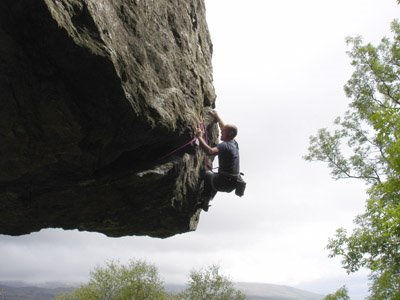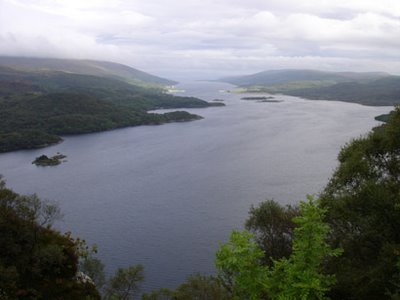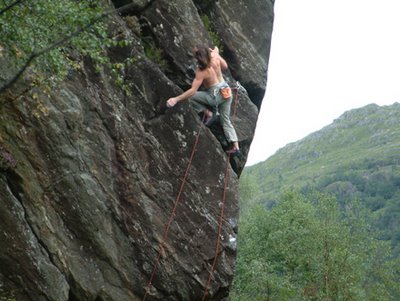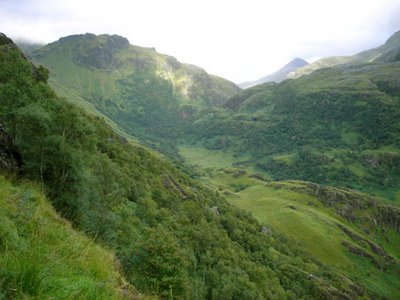I was looking for something in my email folders and came across an email I wrote ages ago for a PR executive who contacted about a contract she was assigned to that involved relating to climbers. She knew nothing about climbing and asked me to quickly jot some ideas about climbing challenges to give her a clearer idea what I ( and I suppose others) get out of it. Explaining climbing succinctly to non-climbers is not always easy, for me anyway. This was what I came up with off the top of my head:
Climbing challenges -
Danger
Climbing is perceived to be a highly dangerous sport and its professional athletes are often considered to be addicted to danger. This is a nice idea, but the truth is really that most climbers just enjoy controlling danger. Climbing itself is not dangerous (excepting certain objective dangers such as rockfall & avalanche), only falling off is dangerous. The best climbers are the ones who have developed the highest awareness of their own limits and the potential dangers around them and so can climb safely at the extreme limit of their abilities, hopefully never allowing themselves to step outside those limits. Of course, the limits can be extended by training to climb better, improve fitness and better understand the environments to be tackled. To climb at the highest level today, climbers need to work hard like other athletes on their technical and physical skills, but also develop this awareness of how to be safe in highly pressured situations. The main ingredients for this are a great respect and humility towards mountain (or any dangerous) environments, for life, and a willingness to accept that a long apprenticeship in climbing cannot be shortcut.
Commitment
Commitment is an idea that is really important for all professional climbers. Climbing is a broad church of different activities, so it means different things to different climbers. For mountaineers, it might mean starting up a huge 1000 metre north face with 8 days food and no chance of safe retreat, the only option being to reach the top somehow before food and energy runs out. For rock climbers, it might mean launching up a blank section of rock, getting further and further away from the last piece of gear (and hence facing progressively longer fall potential). Hesitation or mis-reading the move sequence will mean dipping into the reserve of physical stamina to get through, or even falling off. Commitment will mean getting safely to the top. For sport climbers, where danger is not an issue, commitment will be to the single-minded athletic dedication to making impossible climbs possible, by hard, uninterrupted training.
Adventure
Mountains, rock faces, islands, sea cliffs, caves etc are all naturally adventurous places because there is much hidden unless you literally climb into them to see whats there. Exploring these places and going where other people haven't been or cannot easily reach is an obvious draw.
Movement
Climbing is a basic natural body activity we are good at, like walking, swimming and running. Whereas the other activities involve uniform repetitive movement, climbing involves an infinite range of subtle movements, demanded by the shapes of the rock. This provides its addictive interest and quality. The rock provides its own movement demands, which are often exacting, but leaving enough room for creative movement too, like dancing.
All of these together!
For most climbers, the activity is more like a way of life than a sport. I think this is because it has so many strands of enjoyment, so it feels like five or six separate sports in one.
How climbing relates to life in general...
I think climbing partnerships often teaches climbers a lot about relationships with other people, especially relating to trust and how people are very different in different situations. The pressured situations of climbing quickly give insights into the characters of climbing partners. I think this is why is tends to foster strong partnerships and friendships between climbers, and often teaches climbers humility. Climbing situations are also a place where status means little, so it often a leveller of class and brings very different people together.






































